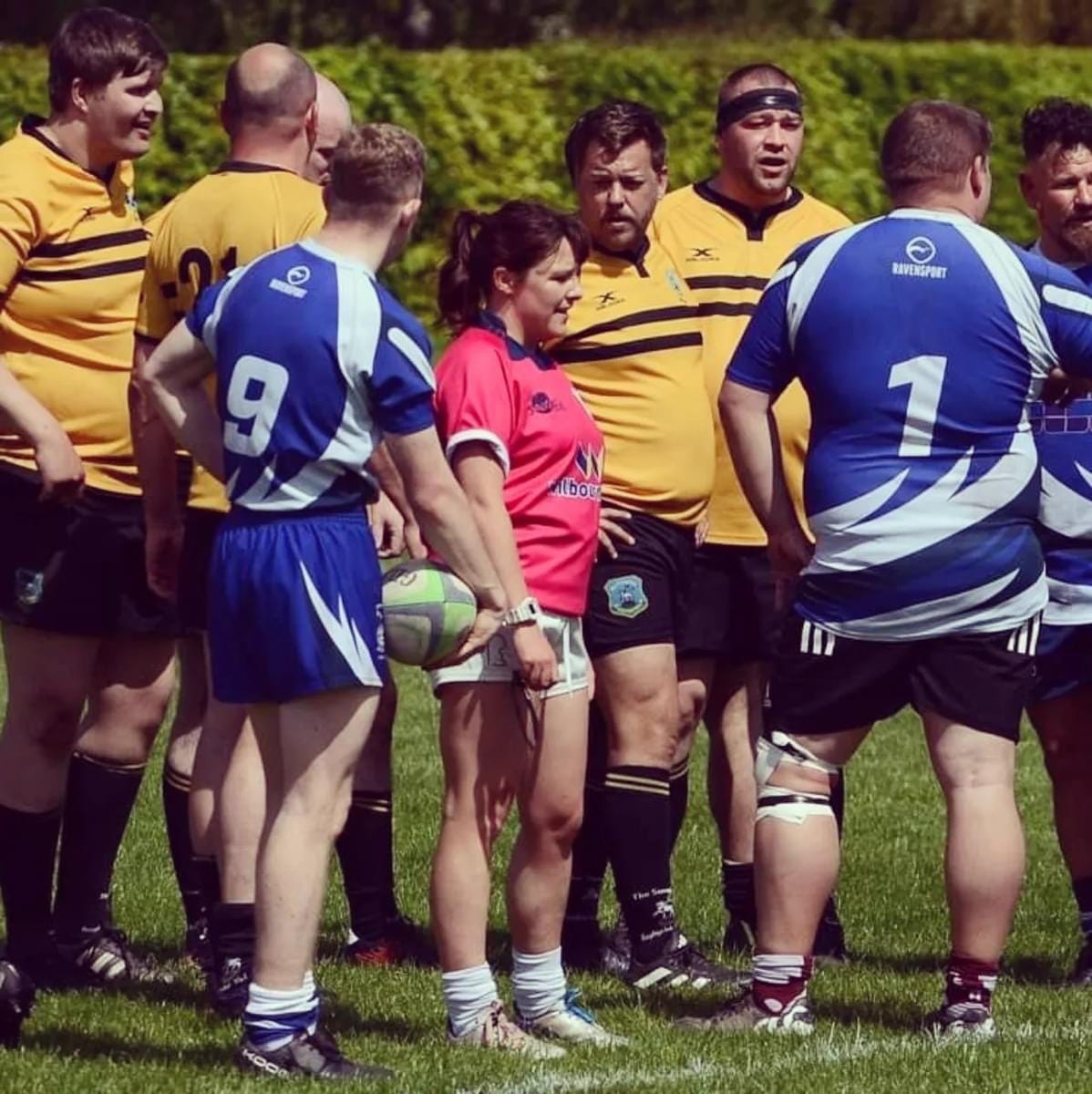Experiences of a female referee
Ellie Bilton has refereed some of the matches I’ve coached at. It’s important that this sport is inclusive in all aspects. Ellie discusses her experiences of refereeing and what skills are needed.
As a player, I noticed quite a few times where we were unable to get a referee. We also had never had a referee that did not identify as cis male.
When I got injured, contact became too high risk for me. I got onto the referee journey so I could help with the situation!
Unfortunately there are challenges for female refs, some of the usual referee challenges are expedited due to gender, such as abuse.
There are still pockets of people that believe women should not be involved in the men's game, or that women's sport is somehow less important and enjoyable.
I feel we can only break this down by increasing visibility and of course demonstrating that this is incorrect.
However, and rightly so, some women feel they should not have to put up with this and that leads to a high turnover level.
How to make a club welcoming to female referees
A lot of grassroot clubs were built at a time when women's sport was not a thing - so it is quite usual for there to be no provisions for female accessibility.
This can be the case for both for referees and sometimes teams.
These clubs can help by finding an alternative private space for women to change and shower, ensuring access to 'sit down' toilets and providing sanitary disposal items.
If you’re based in England, you can also use the funding available before the women's world cup to make some changes.
I have had some lovely welcomes at clubs, which I have come to not necessarily expect.
Sweet treats and drinks in the refs room is always very kind but a smile and a handshake goes a very long way!
A club I refereed at recently gave me a beautiful hand etched wine glass. It does help to know that they understand games need a ref and it can be a hard graft for us.
What skills are needed to referee?
I struggle a lot with confidence which is something I have really had to work on to referee. No body out there is backing you, so you have to learn to back yourself.
Being shouted at is really tough for me due to previous trauma, but I am learning new ways to manage and cope with those behaviours.
Being a referee is incredibly rewarding - you are facilitating games and assisting grass roots rugby.
Seeing the players’ faces after a game is (usually) a great feeling. I feel personally it's been a real journey of personal growth and something I am proud of myself for.
I also get to keep fit and in the game, without another metal leg.
I believe the main skills a referee needs are personal:
How you manage a game and interact with the players and coaches.
Being in control is absolutely key (something I still occasionally fail at).
An ability to reflect and learn.
You need to have a good level of fitness, I have found my muscles have changed as I require more explosive power to sprint.
I also spend a lot of time side stepping and running backwards.
Knowledge of the laws and keeping up to date with them is obviously key.
Diversity within refereeing
My main goal at the moment is recruiting more diversity into the profession, it is still very much an older white cis male world.
It would be amazing to open up more possibilities for young people, people of colour, different gender identities and the LGBTQ+ community to drive the game forward.
Visibility is so important, and the amount of times I've been at games and had people approach saying it's great to see a woman, they didn't know women could ref men or that their children loved seeing it is wonderful.
That visibility and inspiration needs to be more and also represent other groups which are sadly lacking.
This needs to be supported by infrastructure so all groups feel they belong and are valued.




